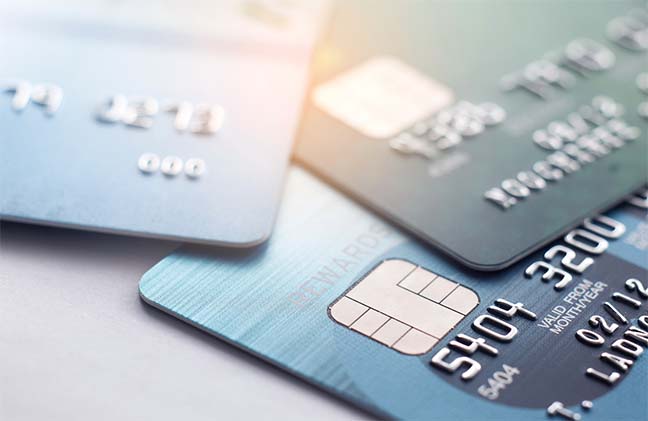Have you ever wondered how prepaid cards work? Would you like to know the differences between prepaid and debit cards? This article will discuss how prepaid cards work and why they are helpful.
Prepaid debit cards are a convenient way to manage your money. That’s because they’re like gift cards pre-loaded with money—you can use them like cash, but they don’t expire after a certain period. However, there are some downsides to using these types of debit cards that consumers need to know before making their decision—like whether they qualify for overdraft services or if their credit score will be affected by using this type of card!
What are prepaid debit cards?
Prepaid debit cards are a convenient way to pay for things and manage your money. They’re also helpful if you have no bank account or credit history because they can help you build credit and make it easier to get approved for loans or credit cards in the future.
Prepaid debit cards are a type of debit card that can be loaded with money and used to make purchases, withdraw cash, and pay bills. They offer several advantages over traditional bank accounts:
- You don’t have to worry about overdraft fees or late payments, because prepaid cards restrict your spending. This makes them ideal for people with bad credit. Prepaid debit cards allow users who can’t access checking accounts or other financial services to store their funds more securely.
- A prepaid card is safer than carrying around cash since federal regulations regarding fraud protection protect it and lost/stolen funds recovery. If you lose your card, there’s no need to cancel it—you contact the provider immediately to get a new one issued.
- Prepaid cards are made with different access levels, depending on how much you load onto them. Some offer more features than others, like rewards programs, online banking access, and even no foreign transaction fees when traveling abroad (which means purchases made outside the United States won’t be charged extra fees).
How do prepaid cards work?
Prepaid cards are simple, flexible and convenient. They don’t require any credit checks or deposits, so it’s easy to get started with a prepaid card immediately
So, how do prepaid cards work?
Prepaid debit cards are similar to traditional bank accounts in some ways. You can use them anywhere that accepts credit or debit cards. For example, many restaurants accept prepaid debit cards as payment for your meal, just like they would take cash directly from you. The difference is that the money is loaded onto the card instead of showing up in a bank account for you to access later. Unlike checking accounts, there’s no overdraft protection or interest earned by holding onto your cash temporarily with a prepaid card — but it gives you peace of mind knowing that your funds will be locked down until you need them again!
Some people prefer a prepaid card for direct deposit instead of opening up another checking account, simply because there are no requirements related to income level or credit history. Anyone who wants one can get one without having their financial background checked first.
Prepaid debit cards vs traditional debit cards
Prepaid debit cards are different from traditional debit cards in several essential ways.
- They can help you avoid overdraft fees. If you carry a balance on your checking account, the bank will charge you each time you overdraw your account and make a purchase using a credit card or check. With prepaid debit cards, you can load money onto the card before spending it—thereby avoiding these charges altogether.
- They can be used for bill payments. Many prepaid cards give users access to online bill pay services that allow them to pay bills directly from their card itself, or link their prepaid account with other financial institutions (like banks or credit unions) that offer bill pay services of their own.
- They can be used anywhere debit cards are accepted as payment methods at brick-and-mortar locations and online stores alike—though some merchants may require cashiers to process purchases made with prepaid accounts, and provide customers with printed receipts showing what was purchased, along with how much money was spent on said items.
- They can be used for international travel. Prepaid debit cards are often accepted as forms of payment in countries around the world, making them ideal for those who plan to travel abroad soon or have family members living in other countries. They’re also helpful if you have friends or loved ones who live overseas and want to send money to them quickly and affordably—this way, they won’t have to worry about high fees associated with wire transfer services like Western Union!
Pros and cons of prepaid debit cards
A prepaid debit card can be an effective tool for those who need a solution for their short-term financial needs. The cards are convenient and functional, but they also come with some drawbacks that you should consider before deciding.
Pros:
- You don’t have to maintain a bank account or credit history to receive one. This means people who have had trouble getting approved for other financial products—such as lines of credit or bank accounts—can still use this service.
- They offer the same access to funds as traditional checking accounts. You can make purchases online, over the phone, and in stores without worrying about paying extra fees.
Cons:
- If used carelessly, prepaid debit cards can leave some users vulnerable to theft if they fail to protect themselves with strong passwords and other data safeguards (e.g., two-factor authentication).
- The cards also come with several fees that you should be aware of before making your decision. For example, some providers charge monthly maintenance fees and ATM withdrawal fees; others charge for inactivity or don’t allow users to transfer money between their accounts or other financial institutions’ accounts.
Some prepaid cards seem to be created with both the needs of the consumer and the institution in mind. The best part about them is that you can use them for online purchases, over-the-phone purchases, at retail locations, or even donate money to charity over the phone.
In a nutshell, prepaid debit cards are an easy and affordable way to pay without the hassle of cash or similar physical payment methods. Moreover, prepaid debit cards allow consumers to safely spend their money with added protection against abuse or theft. While some people will feel more at ease using cash as a payment, others may have specific needs that only a prepaid card can fulfill. Whatever your personal feelings on the matter might be, it is helpful to know how they work so you can make an informed decision in the future.








